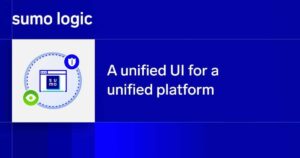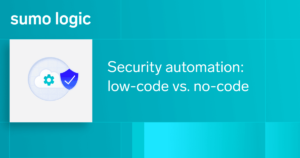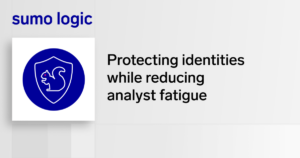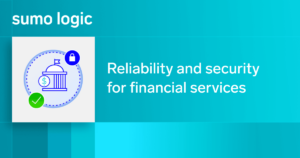You’ve read all about the perks of SOAR security and decided to invest in a SOAR solution. Now the results should start rolling in immediately, and your SOC performance will drastically improve, right? Well… not exactly. While SOAR does replace the manual effort of having to assess, analyze, and react to alerts, thus instantly proving its worth, simply implementing SOAR is not enough to maximize your SOAR security ROI.
In this third and final SOAR Guide as a part of our SOAR trilogy, you will find that there is a series of interconnected segments that, if followed properly, will help maximize your SOAR platform’s ROI and thus make your investment in SOAR security worthwhile.
Investing in a strong SOC team without SOAR security will downgrade your ROI
Prior to purchasing a SOAR solution, you will probably consider the pros and cons of investing in a SOAR solution. And while you do that, consider the structure of your organization. Now, the typical SOC team that any serious company should strive towards building mainly consists of:
-
Information Security Manager: Average yearly salary is $51,881
-
Security analysts: Average yearly salary is $76,410
-
Security engineers: Average yearly salary is $99,834
-
CISO: Average yearly salary is $179.539
The average salary for each of the aforementioned security professionals may vary depending on many variables (Country of residence, level of expertise, etc.). Still, investing in a solid SOC team comes at a hefty price, nonetheless.
Furthermore, while it is smart to hire the best security professionals on the market, if their potential is not optimally utilized with the help of contemporary technologies such as SOAR, you will end up paying thousands of dollars for your security professionals to drown in threat investigation alone due to the thousands of alerts an average organization is receiving. This means that you’ll be investing a mind-boggling amount of money in threat investigation alone, while threat remediation is still an unresolved topic. And you wouldn’t want to spend a fortune on building a compact SOC team and not invest in the last piece of the puzzle that will bring harmony to your entire security operations center.
Your SOC team may work tirelessly to keep all your systems, data, and employees secured, but the more they are bombarded with huge volumes of data, applications, and tools to handle, the harder it becomes for them to effectively carry out effective SecOps. This is where SOAR comes into play as a connective tissue and force multiplier.
Why investing in a SOAR security solution pays off
Understanding how a SOAR platform helps your SecOps exactly is crucial.
SOAR actually makes your investment worthwhile because it affects the performance of your SOC in different ways:
-
Improves collaboration: Your security professionals will have a tough time juggling multiple tools and dealing with thousands of alerts at once. By offering a customizable dashboard and automating a wide range of SecOps, SOAR helps bring your whole SOC team closer.
-
Freeing up time for analysts: SOAR allows you to automate entire SecOps processes and fully automates a variety of low-risk assignments, thus freeing up time for your analysts to be more organized and productive.
-
Detecting false positives: Many organizations struggle with huge volumes of alerts that have to be assessed by their analysts. And without a SOAR solution, the analysts will have to manually assess all the alerts, which is incredibly time-consuming and often leads to alert fatigue, and eventually, in loss of quality security professionals.
-
Retain valued security professionals: The growing skill-shortage in the cyber world is making it hard to find decent security professionals and even harder to retain them. This is because the workload can sometimes be overwhelming, and when you add the fact that without SOAR, many security professionals will be delegated the responsibility of manually assessing every alert, it is understandable why the skill shortage is occurring in the first place.
SOAR helps you retain your security employees by doing the “boring part” of assessing every low-risk by implementing full or semi-automated actions. This allows your security professionals to have more time to focus on higher-risk assignments, which, in all honesty, are more challenging for your analysts.
Pairing SOAR with SIEM is a win-win
SOAR allows you to make the most out of your existing tools and technologies as well. For instance, pairing SOAR with your SIEM solution will drastically improve your SOC performance. Why? That’s because SIEM itself is not able to distinguish between true and false positives. SIEM is an advanced alert-detection system that is able to detect alerts but is not capable of assessing their credibility.
This has to be done manually, by analysts and engineers. And constantly tweaking SIEM to be able to accurately determine the severity of a certain alert is a time-consuming process. But, with the implementation of SOAR, your analysts will no longer have to tweak SIEM. SOAR relies on a machine learning engine that constantly learns from the environment it is deployed, and the best part is that SOAR actually leverages the information from SIEM by extracting the data from processed alerts and performing accurate threat-detection predictions that help analysts have the upper hand over alerts as they arrive in real-time.
In other words, SOAR improves the functionality of every tool it interacts with thanks to its machine learning capabilities. This holds true for Cloud SOAR, in particular, thanks to its progressive OIF (Open Integration Framework) capabilities, allowing Cloud SOAR to connect with hundreds of the most popular technologies and apply over 1200 orchestrated actions in the process, ultimately improving the efficiency of the entire SOC team.
Evaluate the needs of your organization
Once again, let’s emphasize the fact that investing in a SOAR solution should be contemplated in a meticulous manner. The best way to get the perfect ROI of your SOAR platform is to think about the needs of your organizations first:
-
How many team members does your SOC team consist of?
-
How many alerts do you receive on a daily or weekly basis?
-
What are the most common types of cyber threats you receive?
-
How important is fast incident response time for your organization?
Answering these questions is a must if you want your investment in a SOAR solution to be a productive one. SOAR usually works best if it is operated by a team of only a few individuals. SOAR’s strengths lay in connecting a complex environment and untangling the process of having to through too many tools and alerts. So if your SOC team doesn’t receive too many tools, is not that big, and if you commonly receive threats that are not that dangerous, to begin with, then you won’t be able to extract the benefits of SOAR.
However, if your SOC team is overwhelmed with alerts, and if your SOC team is not expansive enough to deal with the tremendous load of too many alerts, then SOAR is definitely a technology worth investing in.
In short, SOAR will help you do more with fewer resources. And that’s the biggest ROI you can ask for.
Learn how to utilize SOAR’s strengths
As we mentioned before, SOAR’s strengths lay in connecting people and drastically increasing the effectiveness of your SOC team. And yes, if used properly, SOAR can do wonders for your SecOps:
-
Improves the effectiveness of your SOC team by ten times
-
Increases your incident response time by 80x
-
Increases the number of resolved incidents by 200%
-
Drastically improves threat hunting capabilities
However, these benefits don’t come by default with the sole fact of implementing SOAR into your security ecosystem. After all, your security professionals are the ones that are going to be responsible for eliminating cyber threats; SOAR is just going to make their job a whole lot easier.
SOAR relies on a series of orchestrated actions that are designed to intercept cyber threats before they become full-blown alerts.
Let’s face it, sorting through thousands of low-risk alerts is a mind-numbing job. And while your security professionals focus on sorting out the false positives, the real threats can slip away and do horrendous damage to your organization. Which is exactly why SOAR is such an integral aspect of every modern SOC team. As it drastically improves your incident response time.
SOAR learns repetitive patterns and can be instructed to fully carry out the SecOps process or only apply semi-automation. The degree of automation is adjustable and can be altered by your SOC team. That’s the beauty of it. Given that many fear the incorporation of automation in cybersecurity processes, SOAR’s fully adjustable automation proves there is nothing to be afraid of, as security automation only serves to boost the effectiveness of SecOps, not compromise them.
Choose the right SOAR security solution: What makes Cloud SOAR the best
To make the most out of a SOAR solution, you need to make sure you’ve made the right pick. Not every SOAR solution provides the same features. While there are some standard features like orchestration and automation, many SOAR solutions differ due to their unique internal vision which is distinctive to every company.
There are those SOAR solutions that are deemed as pioneers in the SOAR industry, such as Cloud SOAR, and there are those who follow.
You need to choose a SOAR solution that puts the client’s needs in mind and is dedicated to always pushing toward innovation. The reason why SOAR is deemed as such an important aspect of cybersecurity is that SOAR is thought to be on the same level of sophistication as the most advanced cyber threats of today. But not all SOAR solutions are developed in the same way.
This is why you need to look for the clear tell-tale signs that speak silent volumes of the credibility of a certain SOAR vendor. For instance, when you look at what Cloud SOAR has achieved in the cybersecurity, it is clear that Cloud SOAR belongs to the group of “pioneering” SOAR solutions:
-
The SOAR vendor with the highest number of patents (Three)
-
Protagonist of the OIF (Open Integration Framework) philosophy
-
The only SOAR solution with OT/IT use cases
And most important of all, Cloud SOAR includes excellent customer support service. Which will never leave you high and dry in times of need.
Summary
Investing in a SOAR solution is one of the smartest moves you can make. That is the least we learned in this SOAR Guide Trilogy. Even though SOAR is a relatively novel technology that is yet to bloom, we are already witnessing its immense value. And, without a doubt, the future of cybersecurity has SOAR written all over it.
Now that you know how to make the most out of your investment in SOAR, you can visit our SOAR Guide #1 and SOAR Guide #2 to refresh your memory of the fundamentals of SOAR and its role as a cybersecurity protagonist.



